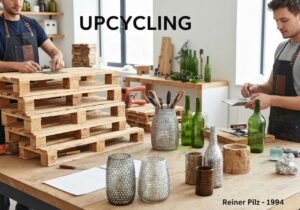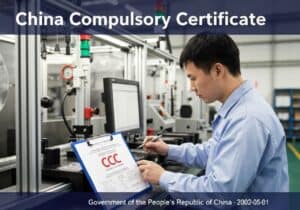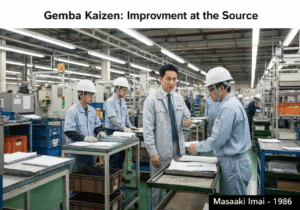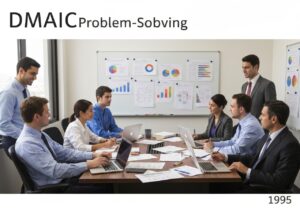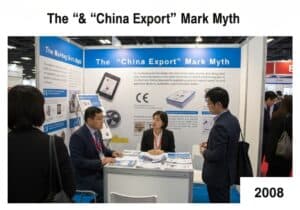这是我们最新精选的世界范围内以循环经济为主题的出版物和专利,涉及许多科学在线期刊,分类集中于循环经济、升级再造、可持续生产、材料回收、共享经济、生产者延伸责任和循环供应链。
Integrating Circular Economy Principles into Architectural Design Pedagogy
Published on 2025-10-21 by Madhavi P. Patil, Anosh Nadeem Butt, Carolina Rigoni, Ashraf M. Salama @MDPI
Abstract: Architectural education has increasingly engaged with the Circular Economy (CE); however, integration remains largely material-centric, emphasising life-cycle accounting, efficiency, and design for disassembly, while social, cultural, and governance dimensions are underrepresented. This study introduces the Circular Commons Framework, which repositions circularity as a collective, participatory, and socio-spatial practice. Using a qualitative comparative case study methodology, five internationa[...]
Our summary: This study critiques the current integration of Circular Economy principles in architectural education, highlighting a focus on material aspects while neglecting social and cultural dimensions. It introduces the Circular Commons Framework, emphasizing collective practices and stakeholder engagement. The framework outlines components for curricular design and requires systemic support for effective implementation.
Circular Economy, Architectural Education, Participatory Design, Systemic Support
Publication
Sustainable Control of Large-Scale Industrial Systems via Approximate Optimal Switching with Standard Regulators
Published on 2025-10-21 by Alexander Chupin, Zhanna Chupina, Oksana Ovchinnikova, Marina Bolsunovskaya, Alexander Leksashov, Svetlana Shirokova @MDPI
Abstract: Large-scale production systems (LSPS) operate under growing complexity driven by digital transformation, tighter environmental regulations, and the demand for resilient and resource-efficient operation. Conventional control strategies, particularly PID and isodromic regulators, remain dominant in industrial automation due to their simplicity and robustness; however, their capability to achieve near-optimal performance is limited under constraints on control amplitude, rate, and energy consumptio[...]
Our summary: This study presents an analytical-computational method for achieving near-optimal control in large-scale industrial systems using standard regulators. It addresses practical constraints and improves performance metrics such as transient duration and energy loss. The approach supports sustainable production practices aligned with key United Nations Sustainable Development Goals.
Optimal Control, Industrial Automation, Sustainability, Nonlinear Systems
Publication
Greenhouse Gas Analysis of Sustainable Sugar Beet Cultivation, Taking into Account the Technological Value and Quality of Various Varieties
Published on 2025-10-20 by Magdalena Wróbel-Jędrzejewska, Łukasz Przybysz, Ewelina Włodarczyk, Andrzej Baryga, Andrzej Jaśkiewicz, Łukasz Ściubak, Krzysztof Sitko @MDPI
Abstract: Sustainable production also involves analyzing greenhouse gas (GHG) emissions throughout the entire cultivation and processing cycle. The emissions balance for different sugar beet varieties is a key element of environmental assessment in sustainable production systems. It is consistent with the objectives of the European Green Deal and aims to decarbonize agri-food technology. This study aims to assess and compare GHG emissions associated with the cultivation of three sugar beet variants (Viola[...]
Our summary: This study evaluates GHG emissions from cultivating different sugar beet varieties, considering their technological and quality characteristics, to support sustainable production aligned with EU climate goals.
Greenhouse Gas Analysis, Sustainable Sugar Beet Cultivation, Technological Value, Quality
Publication
Research on the Morphological Composition and Recovery Possibilities of Selectively Collected Plastics and Metals—A Case Study
Published on 2025-10-20 by Wojciech Hryb, Andrzej J. Wandrasz @MDPI
Abstract: The basis for the assessment of the quality of selective waste collection, as well as the direction of modernization of municipal waste sorting technology, should be morphological composition studies. According to research, the gold standard for the assessment of the quality of selective waste collection, as well as the direction of modernization of municipal waste sorting technology, is morphological composition studies. Selective collection of municipal waste is an indispensable element of the[...]
Our summary: This study assesses the morphological composition of selectively collected plastics and metals in a Polish city. It highlights the importance of morphological studies for improving waste sorting technology and recycling rates. The research also simulates the impact of a planned deposit system on the quality of collected waste.
morphological composition, selective waste collection, recycling, circular economy
Publication
Advancing Circular Economy Implementation for High-Speed Train Rolling Stocks by the Integration of Digital Twins and Artificial Intelligence
Published on 2025-10-20 by Lalitphat Khongsomchit, Sakdirat Kaewunruen @MDPI
Abstract: This paper presents a state-of-the-art review on the integration of digital twins and artificial intelligence to advance the circular economy and the 10R principles implementation in high-speed train rolling stock. Rolling stock generates substantial waste at the end of its service life, yet the application of the circular economy and the 10R principles (Refuse, Rethink, Reduce, Reuse, Repair, Refurbish, Remanufacture, Repurpose, Recycle, and Recover) in this domain remains limited compared with[...]
Our summary: This paper reviews the integration of digital twins and artificial intelligence to enhance the circular economy in high-speed train rolling stock. It analyzes 47 studies, revealing a focus on data management rather than the 10R principles. An automated workflow is proposed to improve condition monitoring and sustainable resource management.
Digital Twins, Artificial Intelligence, Circular Economy, High-Speed Trains
Publication
Towards a Resilient, Circular, and Sustainable Future
Published on 2025-10-19 by Sorina-Geanina Stanescu, Constantin Aurelian Ionescu, Maria Cristina Ștefan, Luiza Ionescu, Georgiana-Tatiana Bondac, Andrei Mihai Cristea @MDPI
Abstract: The agri-food sector is currently undergoing a significant digital transformation, driven by climate change, frequent supply chain disruptions, and increasing demand for transparency and food safety. This article, based on a systematic review of 113 recent studies (in line with the PRISMA guidelines), delves into how emerging digital technologies, particularly blockchain, are reshaping agri-food supply chains towards sustainability, a circular economy, and complete product traceability from prod[...]
Our summary: The agri-food sector is experiencing a digital transformation due to climate change and supply chain disruptions. Emerging technologies like blockchain are enhancing sustainability and traceability in food supply chains. The study introduces the CTSAF framework to guide policymakers and organizations toward a resilient and sustainable food system.
Blockchain, Agri-food, Sustainability, Industry 4.0
Publication
Coated functional and technical textiles containing recycled silica powders
Patent published on the 2025-08-21 in WO under Ref WO2025174329 by KIRAYTEKS TEKSTIL SANAYI VE TICARET ANONIM SIRKETI [TR] (KirayoĞlu Burak [tr], Polat AyŞe DilŞad [tr], Özden Sema [tr], Kanik Mehmet [tr])
Abstract: The invention particularly relates to the development of high value-added, environmentally friendly functional and technical textiles by using amorphous "biobased silica" and "silica fume" obtained by recovery methods from wastes as fillers in textile coatings, taking into account the demands for "sustainable production". With these materials, which are used as an alternative to traditional fillers (especially TiO2, calcite, kaolin, synthetic silica and carbon black), the selected textile surfac[...]
Our summary: The invention focuses on developing eco-friendly textiles using recycled silica powders. It aims to replace traditional fillers with biobased silica and silica fume. The resulting textiles offer various functional properties, including light-proofing, heat insulation, and sound insulation.
recycled silica, functional textiles, sustainable production, textile coatings
Patent





